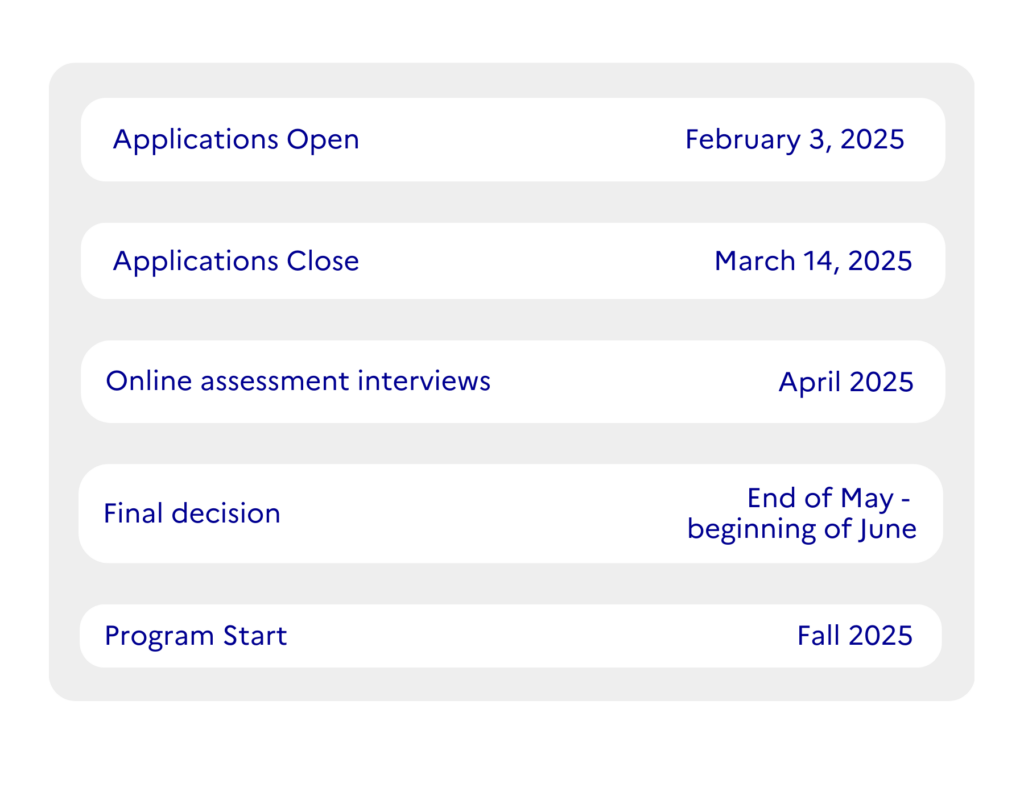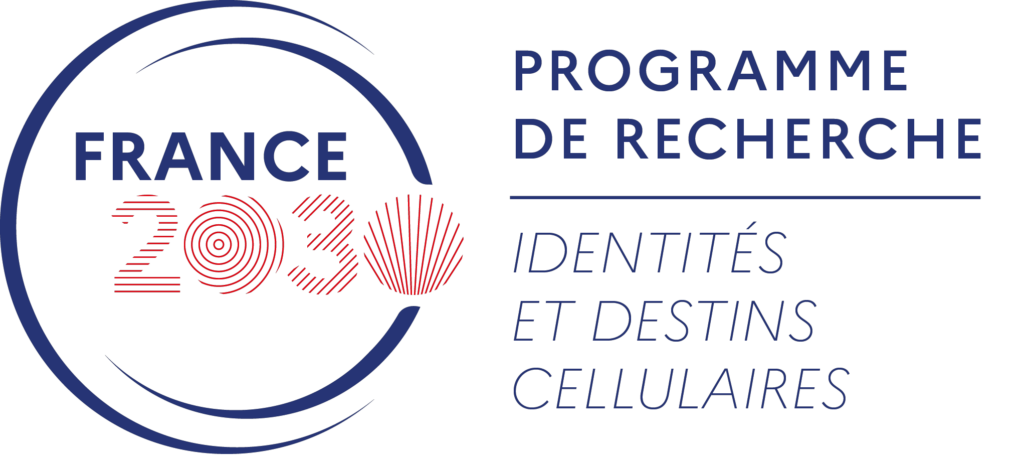
Cell-ID International PhD Program

PhD

Deadline 14 March 2025

France
Join the Cell-ID (Cell Identities and Destinies) Research Program for your PhD in 2025
to participate in a multidisciplinary research program that involves a network of 29 French labs. We are seeking outstanding, creative, and motivated young researchers for a highly collaborative effort using advanced technologies and approaches to understand how cells contribute to both normal development and derail in certain pediatric brain cancers and pave the way toward interceptive medicine.
About Cell-ID
The Cell-ID research program focuses on unraveling the molecular mechanisms of cell fate determination within neural development and its aberrations in specific childhood brain cancers.
Our work aims to develop strategies for interceptive medicine — preventing disease progression by targeting early events in cancer development.
Led by CNRS and Inserm in partnership with major French institutions and international collaborators, Cell-ID integrates omics technologies with advanced imaging to study genome function and 3D nuclear organization in neural tissues under normal and pathological conditions.
By combining cutting-edge molecular tools, selected experimental models, and computational predictive models, this multi-lab program strives to uncover and influence cell trajectories during neural development.
Timeline


PhD Overview – training & skills
- Interdisciplinary core Training: Deep learning, statistics, data analysis, developmental biology, epigenetics, cancer biology, and cutting-edge technologies (e.g., RNA-seq, microscopy, etc).
- Soft Skills Development: Training in outreach, scientific writing, bioethics, unconscious bias, sustainability in research, and diversity, equity, and inclusion (DEI).
- Holistic Training: Empowering students to become self-reliant researchers and engaged citizens.
- Three-Year Program: Students have three years to complete their research thesis while participating in optional curricular activities offered by the program. A 4th year extension can be discussed with the student’s thesis advisors.
What We Offer
- Dual Co-Supervision: Two supervisors across different disciplines, ensuring a well-rounded academic experience.
- Comprehensive Training: Technical courses and transferable skills training.
- Lab Rotations & Interdisciplinary collaborations: Opportunities to engage in diverse research environments, expanding their skill set and network.
- Unique Research Environment: Leading labs and institutions.
- Community Engagement: PhD retreats, conferences, bootcamps, transdisciplinary projects.
Paired Labs with Available PhD Positions

Cell fate transition and histone H3 variants
Geneviève Almouzni and Laura Cantini
The project aims at characterizing how mutations or alterations in histone H3 variants impact development and cell fate. We will use models established in our laboratories to generate data in cellular populations and at individual cell level. We will apply analysis that exploit multiscale integration and computational methods.
Development of volumetric multi-omic imaging technologies to detect cellular alterations in pediatric cancers
Marcelo Nollmann and Cédric Maurange
This PhD project aims to develop a cutting-edge high-throughput microscope for imaging large tissue volumes, coupled with a microfluidics device for robust multiplexed imaging. This system will enable the study of complex biological processes, such as pediatric cancers and brain development in Drosophila, at unprecedented depth and resolution. The approach addresses current limitations in imaging technologies, providing a valuable tool for systems biology and cancer research.


Modelling OPCs diversity of the hindbrain and their lineage derail during DMG oncogenesis using brain organoids
Stéphane Nédélec and David Castel
The project will consist in specifying the diversity in progenitors and OPC subtypes in the hindbrain, focusing on regional differences. We will further investigate how the oncogenic H3-K27M driver mutation impacts genetic networks controlling OPC commitment and differentiation of these different populations. Combining cancer biology, developmental neuroscience, organoid modeling, and single-cell genomics, this study will uncover mechanisms driving diffuse midline glioma pathogenesis.
Decoding the transcriptional basis for spatial positioning in developing organisms
Sophie Jarriault and Thomas Walter
This project, with significant bio-computing and wet lab components, aims at understanding cellular trajectories during neural development in WT and mutant animals, and how their spatial information is encoded in the transcriptional space. For this, the project will take advantage of the model system C. elegans and its known cellular lineage (invariant in fate, time and space), and of existing scRNA seq data in the lab. The applicant will work at the interface between cell and developmental biology and computational sciences and should therefore have good programming skills, a good command of statistics, an interest in wet lab experiments, and ideally some experience in Machine Learning.

Application Process
Eligibility Criteria
- We welcome applications from excellent and highly motivated students of all nationalities with a passion for science. There is no application fee.
- Applicants must hold a Master degree or expect to obtain it before the start of the program. The applicants need to have both a BSc and MSc or equivalent (usually 5 years of university studies) to be eligible to join the program.
How to Apply
- Complete the online form
- Fill out the online form in English before the deadline: March 14, 2025, 6:00 PM CET. No late submissions or updates will be accepted.
- Select labs
- Choose up to 3 paired labs of interest.
- Research projects
- Describe up to 2 research projects past or ongoing (that lasted at least 4 weeks), including aims, methods, and results.
- References
- Provide 2–3 professional references who know you well academically and personally. They should be independent researchers (e.g., supervisors, group leaders); classmates and postdocs should not be listed as referees. References will be contacted after submission and must submit evaluations by March 19, 2025. Please ensure that your referees are aware of this deadline and are prepared to submit their references on time.
Note: The earlier you submit your application, the sooner your referees will be contacted
- Provide 2–3 professional references who know you well academically and personally. They should be independent researchers (e.g., supervisors, group leaders); classmates and postdocs should not be listed as referees. References will be contacted after submission and must submit evaluations by March 19, 2025. Please ensure that your referees are aware of this deadline and are prepared to submit their references on time.
- Required documents to upload in the form
- CV (up to 10MB)
- Motivation letter (1 page, up to 10MB)
- Degree certificates (For each degree obtained after highschool, provide the official certificate and the grades. If not in English or French, include a translation. Compile all certificates in a single pdf file of up to 20Mb)
- Submission
- Submit through the online form only—no other methods will be accepted.
Selection process
- Evaluation of Written Applications
All applications received by the deadline and accompanied by at least two reference evaluations will undergo a two-step screening process. First, the applications are reviewed for completeness and adherence to the required criteria. In the second step, the written applications are evaluated by the Cell-ID Faculty. Within approximately three weeks of the application deadline, applicants will be notified if they are selected for a video interview.
- Online Panel Assessment Interview
Shortlisted candidates will participate in a 40-minute formal panel interview conducted by Cell-ID PIs (both recruiting and non-recruiting) and lab members. The interview will include a 10-minute presentation of a scientific project the candidate has worked on, followed by a discussion of a scientific article provided ahead of time. Candidates will be assessed based on a defined set of criteria. Following the panel interview, recruiting PIs will rank the candidates for the final interview stage.
- Optional second Interview
Top candidates might be invited for a 1-on-1 interview, either online or onsite, where they will have detailed discussions with the recruiting PIs.
The Cell-ID PhD program is firmly committed to increasing diversity at every level, and cultivating a community where equity and inclusion are valued and supported. We believe both that this is a moral imperative and that a diverse community is the strongest and most creative.
For any questions, please contact phd.applications.cell-id@curie.fr
In application of the GDPR and the Loi Informatiques et Libertés, all candidates have the right to access, rectify, oppose and delete their personal data, to exercise this right, please write to us at the following email address: communication.cell-id@curie.fr